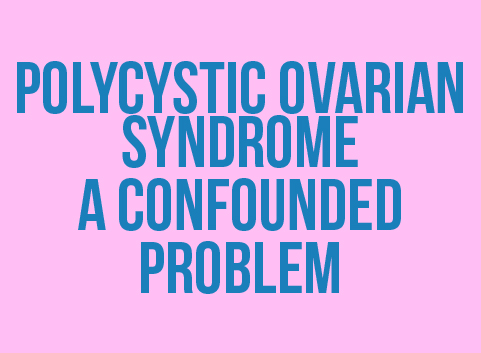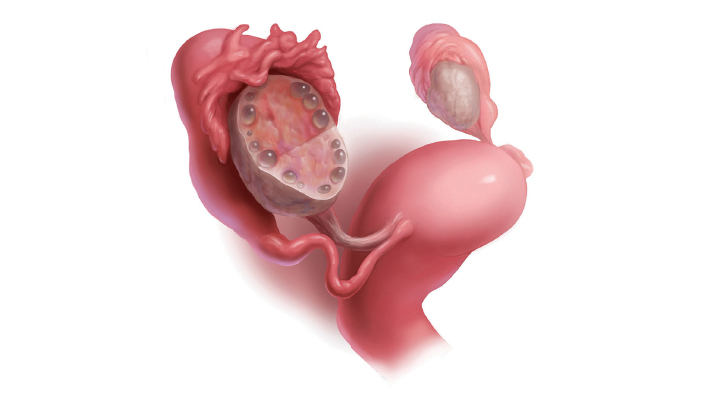Polycystic ovarian syndrome (PCOS)

By Dr. Kanika Chopra
A CONFOUNDED PROBLEM
Polycystic ovarian syndrome (PCOS) is a group of various symptomatic manifestation which is caused by alteration in the hormonal milieu of a female’s body.

The more is talked about this disease; the least is known about it. In this article, I would like to highlight the symptoms associated with PCOS, so that one can visit the gynaecologist at the earliest, before you and your body are trapped in this vicious cycle of this syndrome.
PCOS is seen in 5-8% of all women and are on a rise. Most women with PCOS are overweight or obese, thus this form the starting point of the problem in majority. There happens to be hormonal imbalance to the tune of excess of male hormone, insulin resistance leading to abnormal sugar levels and thus responsible for causing the symptoms as explained, one enhancing other subsequently.
PCOS is characterized by a group of symptoms like menstrual irregularity in the form of infrequent cycles and abnormal flow, excessive hair growth on face, chest, abdomen (dark and coarse texture), loss of scalp hair, acne, inability to conceive, excessive weight gain and over a period of time if not managed properly, one can develop chronic diseases like diabetes, heart blocks, lipid abnormality and even uterine cancers.
PCOS patients due to their physical appearance may also develop anxiety issues and can be depressed as well; needing psychiatrist support. Due to obesity, these patients can develop difficulty in breathing as well while sleeping, the problem commonly known as obstructive sleep apnoea.
If you are suffering from any of the above-mentioned symptoms, you should visit a gynaecologist before it’s too late. After reviewing your symptoms and examining you, the doctor will order a panel of blood tests depending on your symptoms and also an ultrasound of abdomen to rule out other graver causes of symptoms you are suffering. So, once the diagnosis of PCOS has been made, you are primarily responsible for its treatment with an additional support of medicine prescribed to you.
A healthy life style, proper balanced diet and exercise is what should be the most important part of your management of the disease. Even 5-10% of weight loss of the present weight will help in controlling symptoms related to excess testosterone hormone, abnormal sugar levels and even help in ovulation i.e. production of eggs by the ovaries and thus have reproductive benefits in patients aspiring for a baby. If need be, one can resort to bariatric surgery as well if one fits into its criteria.
The doctor will usually prescribe you medicines like contraceptive pills that will help in managing menstrual symptoms and features of hyperandrogenism. Other medicines like progesterone, antiandrogens can be substituted along with medicines to control sugar levels if need be.
Women with PCOS usually complaint of dissatisfaction with the delay in their diagnosis and thus their treatment, as there is a lack of understanding of the disease. Metabolic disease like PCOS should be managed smartly by both the doctor and the patient herself, as this disease can’t be cured, but definitely controlled.
Its time to keep a check on childhood obesity of your daughters and make sure they indulge in outdoor activities, to ensure a healthy lifestyle by introducing healthy food to them, to prevent them from being labelled with the diagnosis of POLYCYSTIC OVARIAN SYNDROME.
